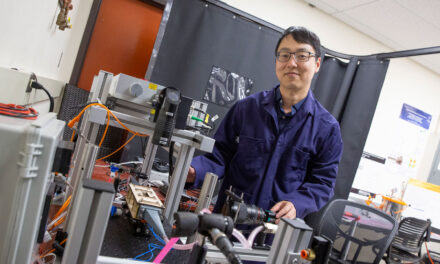
Quest for clean energy comes with complexities
Posted November 29, 2012
There are a lot of “ifs” revolving around endeavors to realize the potential benefits of developing new sources of “clean” energy.
Efforts to reduce dependence on conventional energy sources such as fossil fuels and coal is spurred by the desire to alleviate the harmful environmental impacts of carbon dioxide emissions that result from the production and use of these sources.

ASU assistant professor of engineering Mikhail Chester develops economic and environmental cost-benefit analyses to assess the impacts of producing and using various energy resources. Photo: Jessica Slater/ASU
Researchers are working on using sunlight as a catalyst for a process to produce clean hydrogen fuels, or looking at converting biomass (plant materials) as a clean fuel for power plants.
Other efforts include developing new kinds of batteries to enable automobiles to be fueled solely by electricity instead of a hybrid gasoline-electric power system.
But there remain technological advances to be made before the environmental benefits of such clean energy sources can significantly outweigh the costs of producing and using the alternative fuel sources.
Arizona State University civil and environmental engineer Mikhail Chester weighs in along with other noted experts on alternative-energy issues in a recent article in a prominent international science magazine.
Chester is an assistant professor in the School of Sustainable Engineering and the Built Environment, one of ASU’s Ira A. Fulton Schools of Engineering.
His research involves determining the overall “lifecycle” costs involved in the uses of various kinds of fuels, as well as the costs of technologies needed to produce and distribute those fuels.
What power sources will ultimately offer the best environmentally beneficial options remains a complex question, Chester says.
Read the full article in Cosmos magazine.



































